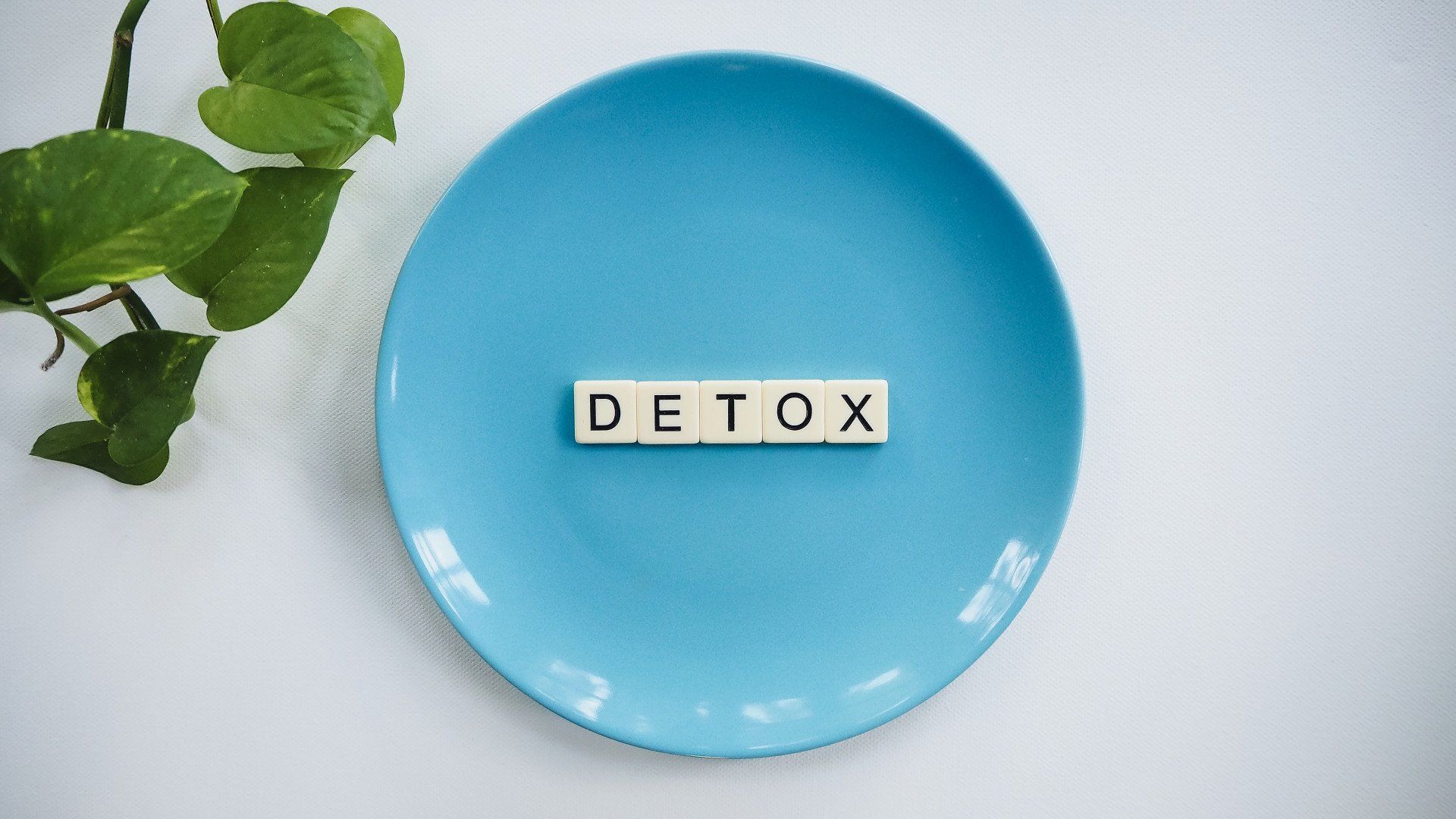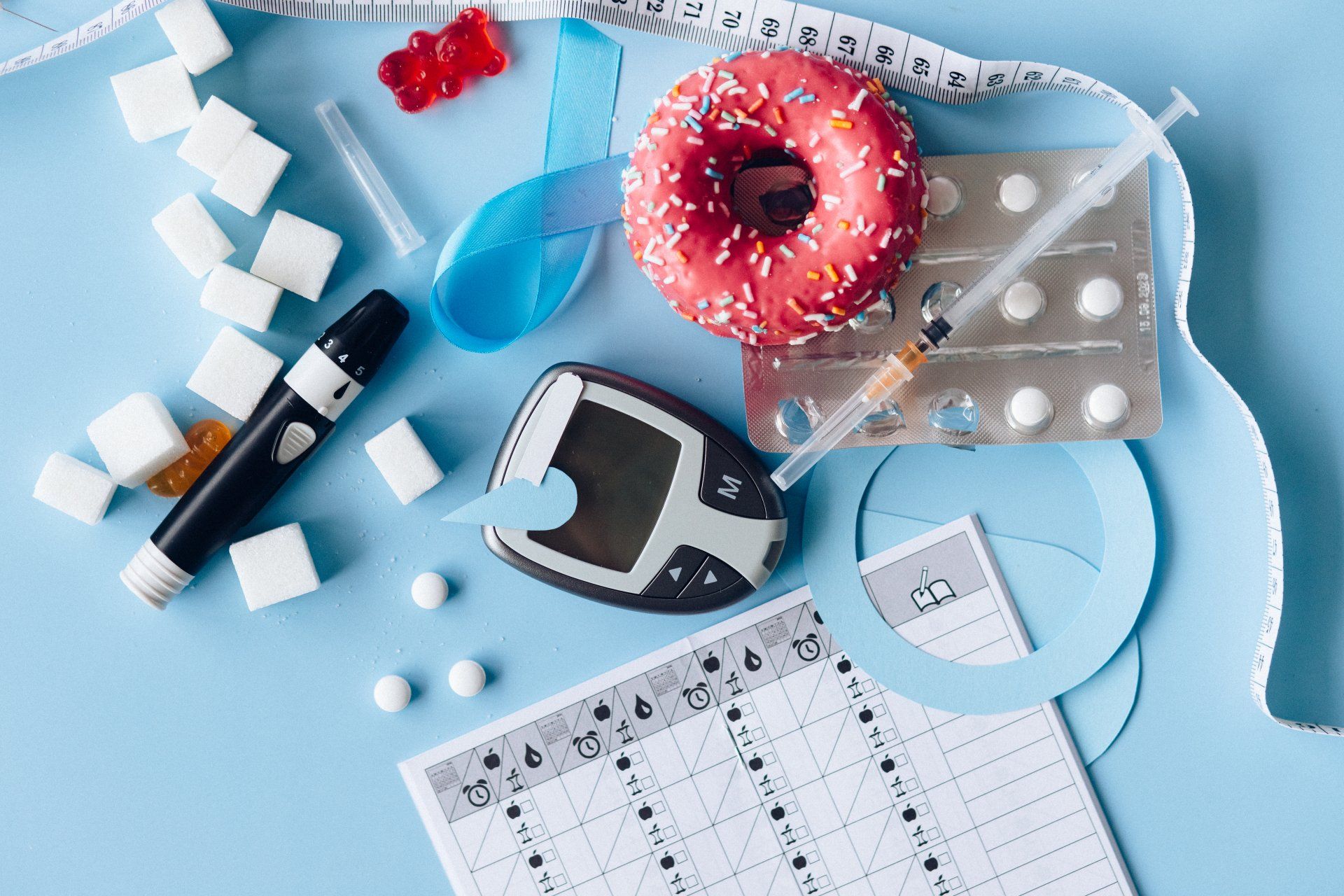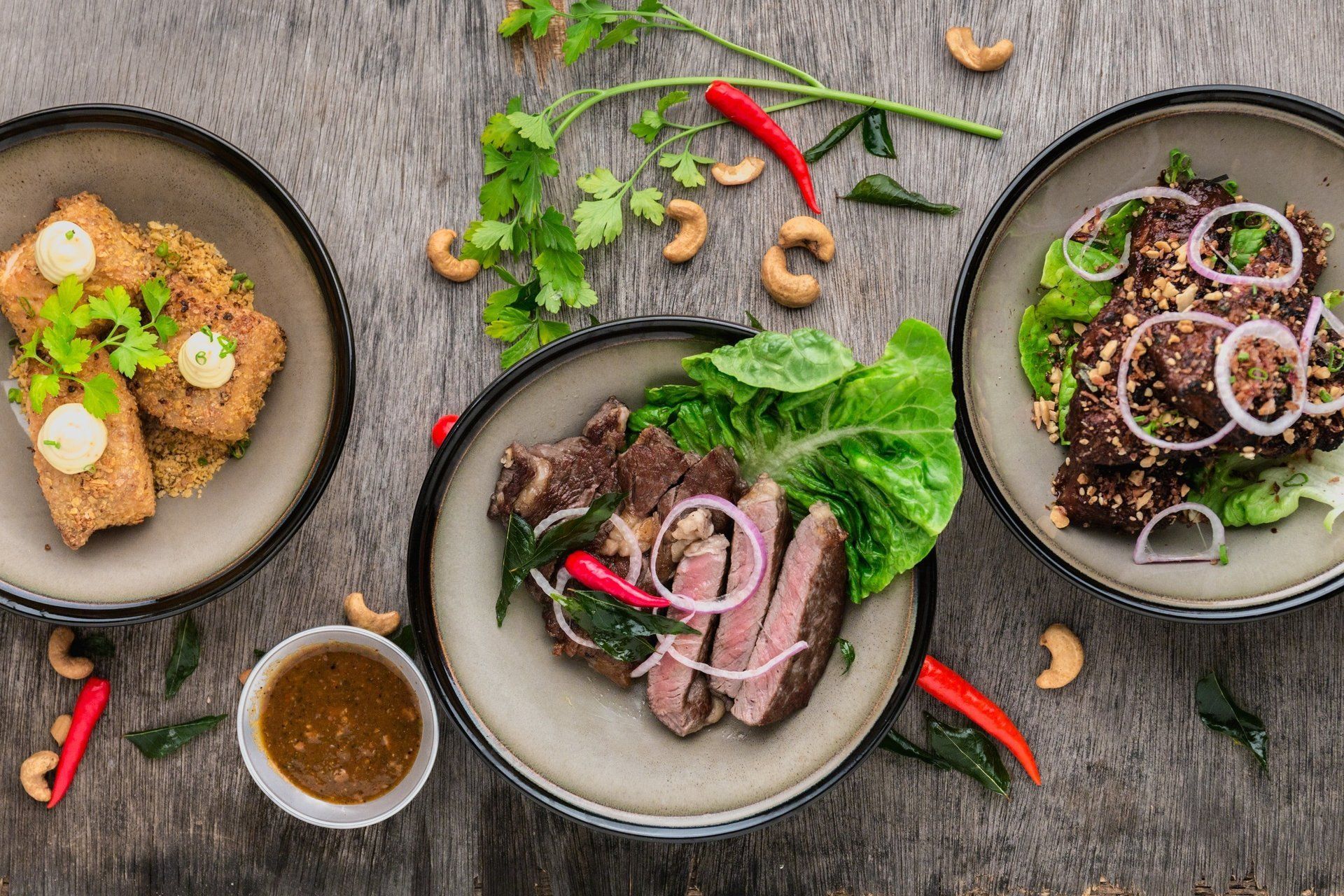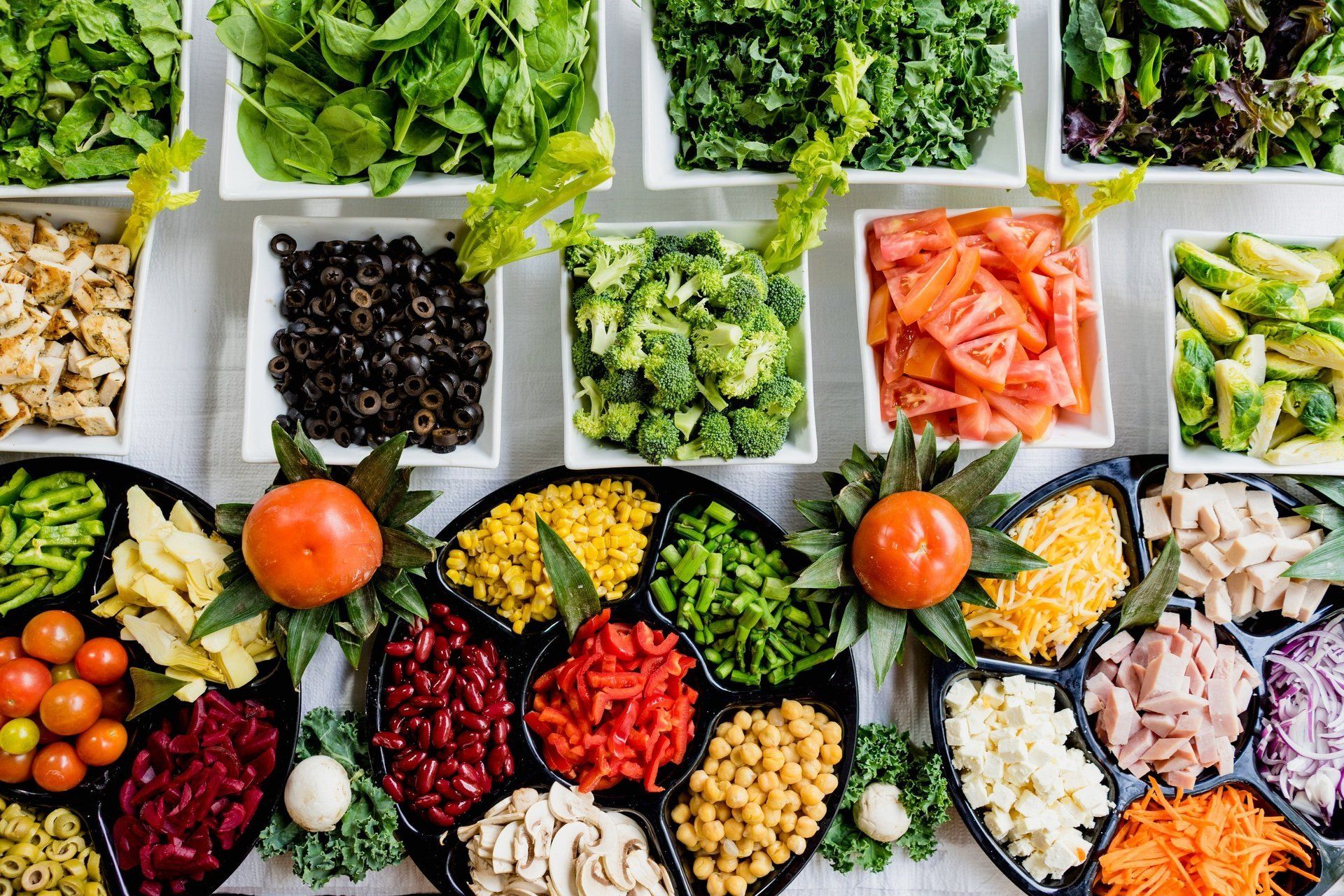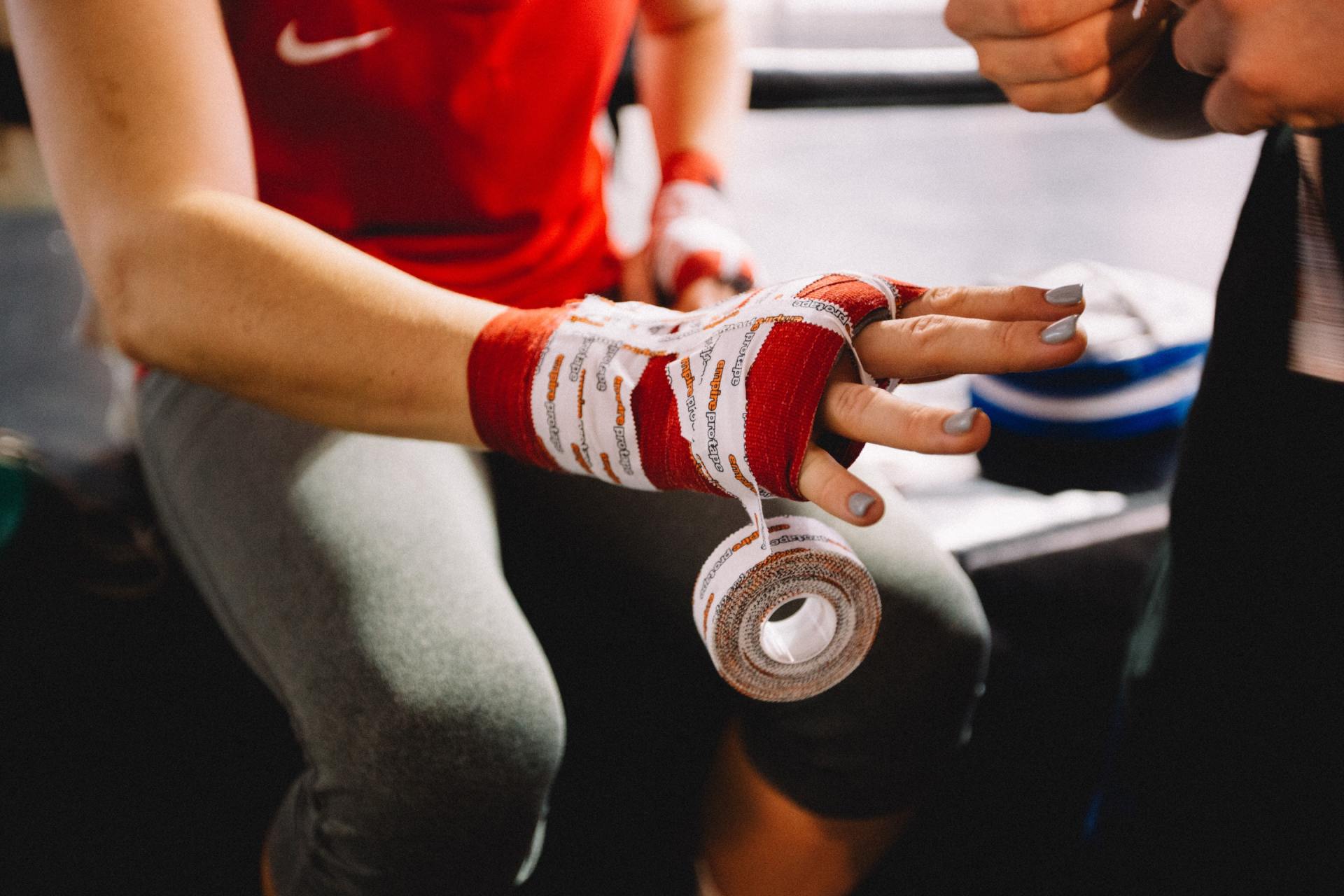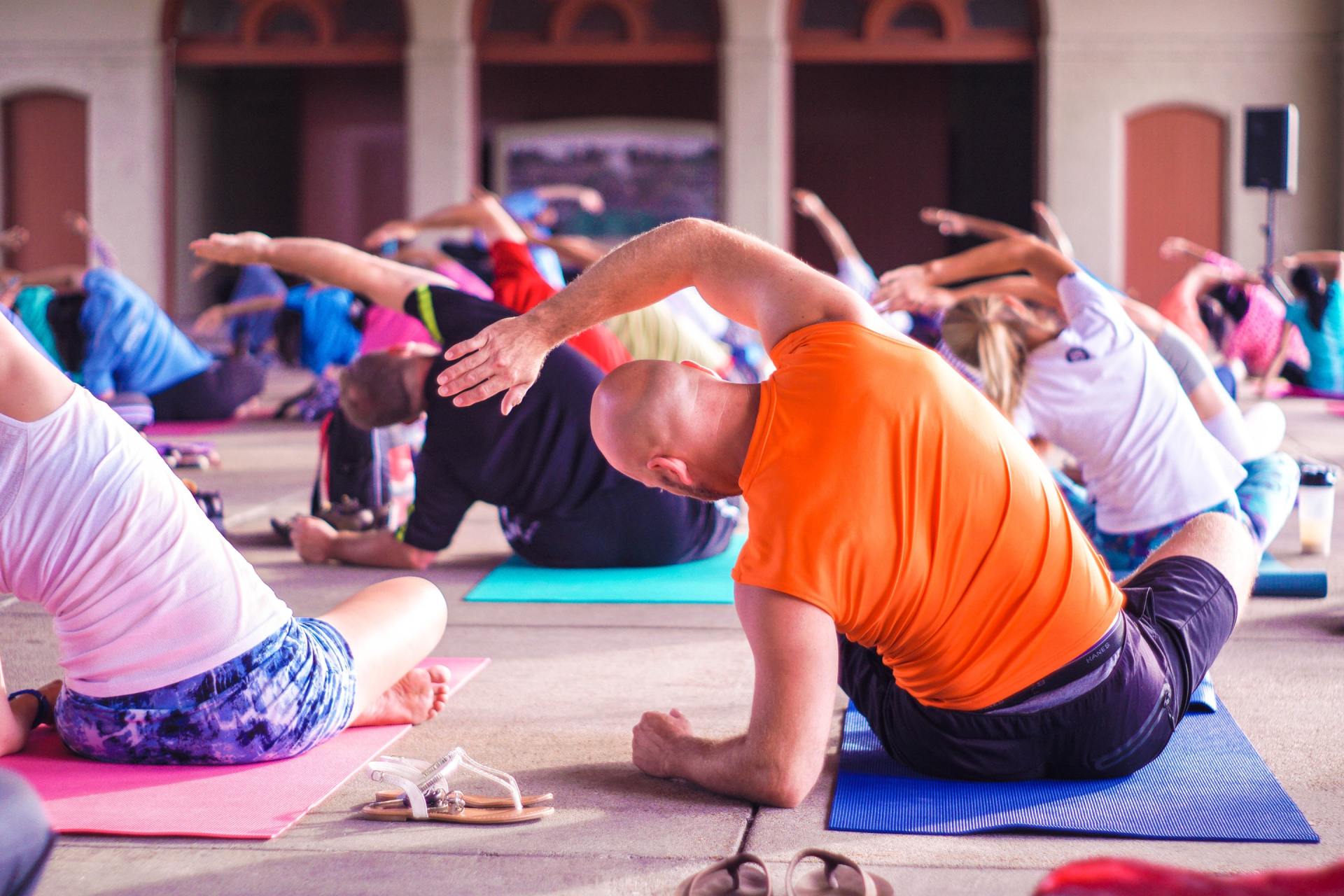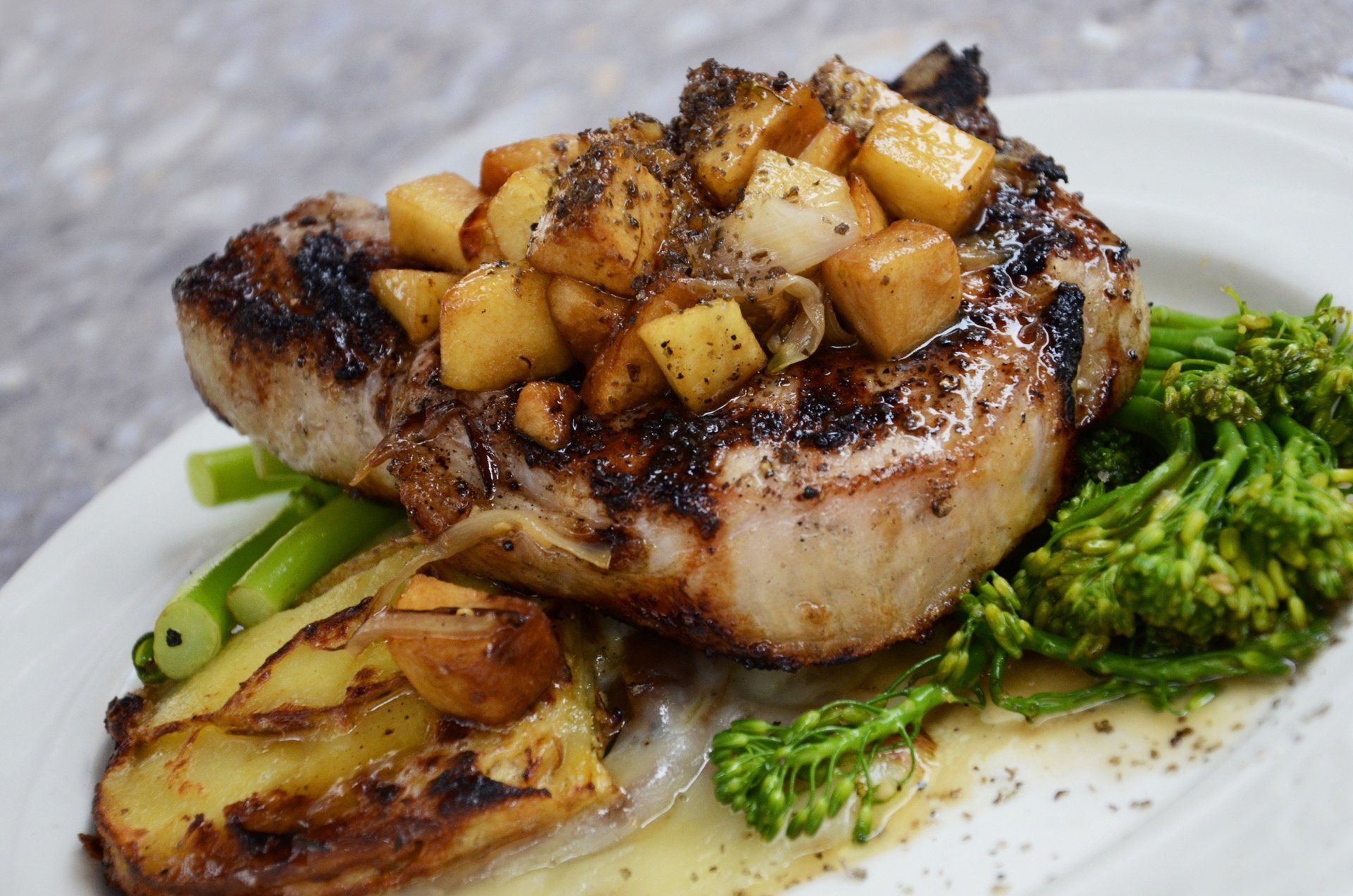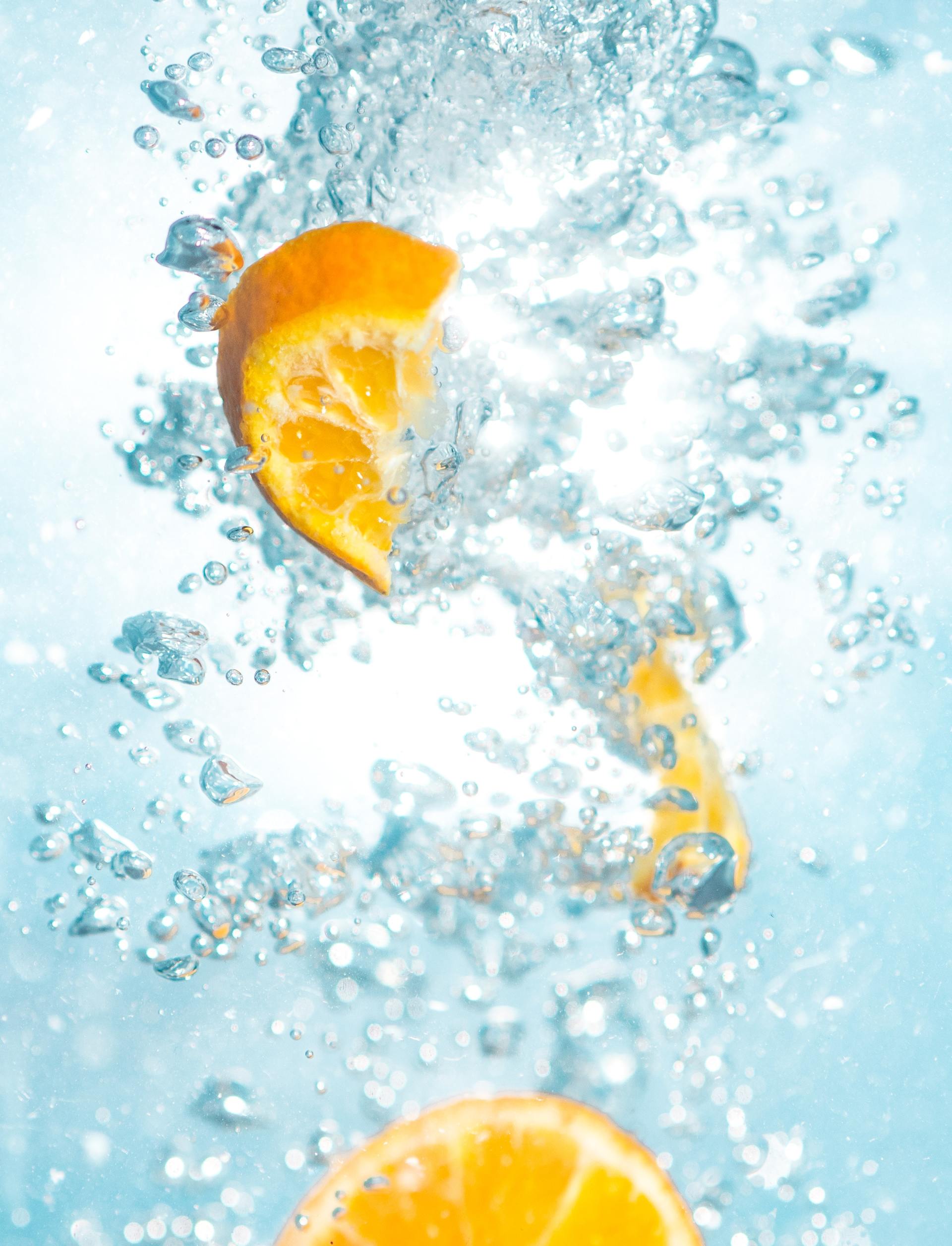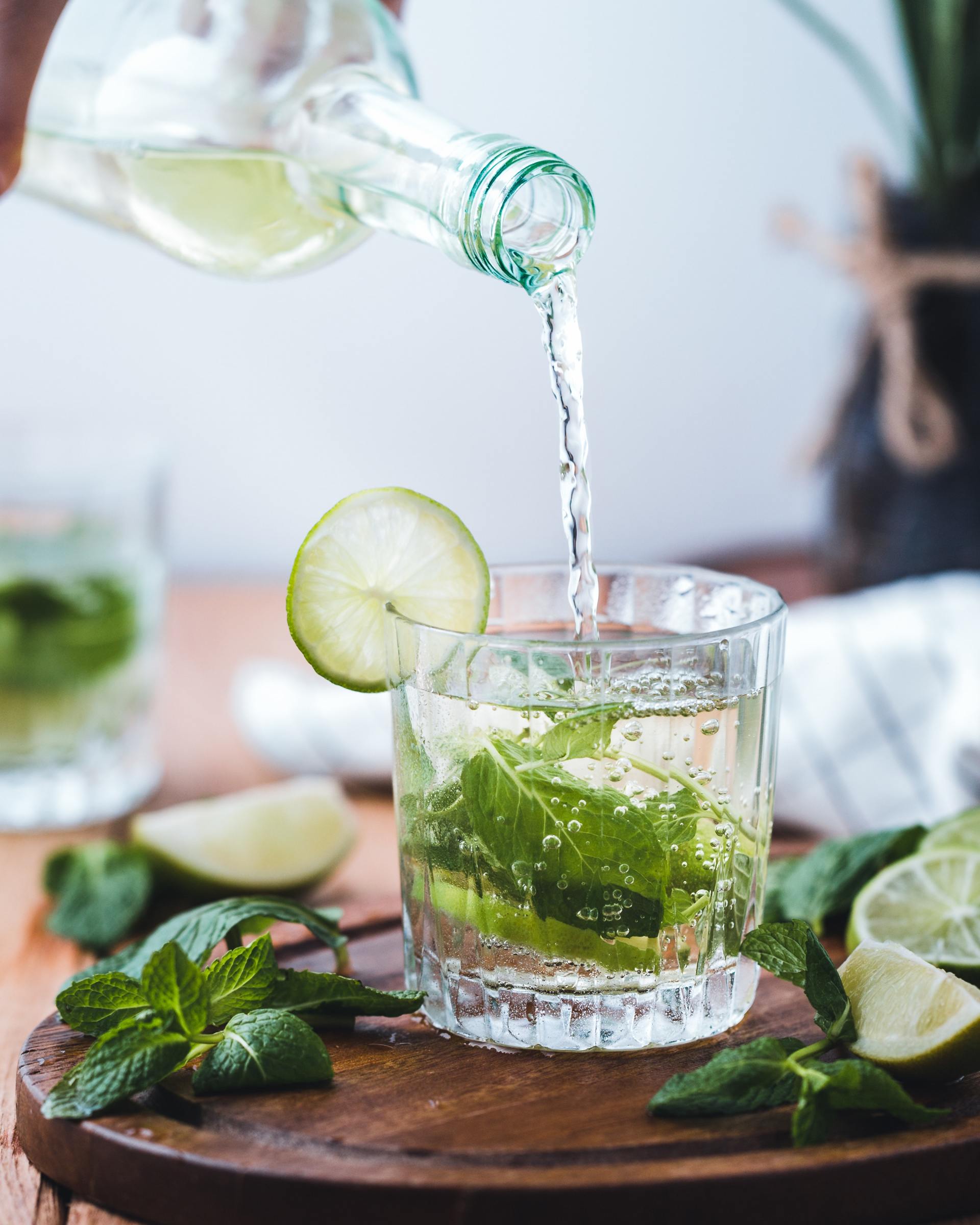WHEN WAS THE LAST TIME YOU ALLOWED YOURSELF TO RECOVER PROPERLY AFTER FEELING ILL?
HERE’S WHY YOU SHOULD MAKE TIME, AS WELL AS WHAT TO EAT AND HOW TO WORK OUT ONCE YOU’VE LEFT YOUR SICK BED.
Recovery: we’re terrible at it, aren’t we? Just take a look around you on your way to work each morning for the proof; it’s worse in winter, of course, but without a doubt there’s always more than one person trying to sneeze as discreetly as possible or sniffling into a tissue. You know it’s peak illness season when there’s synchronised coughing echoing around the carriage and your office - and that catching it is just a matter of time as we plough on through the germs.
When people talk about recovery from illness, they usually refer to being fully healed and getting back to normal life. But in reality, regaining your former health and resuming your activities isn’t always possible. Some of us suffer from health problems that cannot be cured, no matter how hard you try. Others keep experiencing residue symptoms, such as lasting fatigue after cancer or mobility issues as a result of severe bone fractures.
The conventional definition of ‘recovery’ is too limiting for these people: it implies a fixed final destination at the end of the road – one that many of us may never reach.
So what if we stop thinking of recovery as an all-or-nothing deal, but rather as a continuum with many more stages, variations and dimensions than simply “being better”?
‘Recovery’ can mean anything you want it to be: (small) physical or mental improvements, a better quality of life or being able to do something you couldn’t do before. Meaningful examples of this new version of recovery could be being able to walk to the shops again, becoming more independent, picking up your favorite hobby again or getting back to work part-time.
Healing is not a linear process. Unlike the stories you see in the media, recovery is not a simple uphill battle. There are many ups and downs along the way. Depending on your illness – whether it’s curable or chronic, relatively stable or progressive – this process of setbacks and personal victories can repeat itself multiple times.
That’s because ‘being healthy’ isn’t as black-and-white as it’s usually portrayed. Most of us find ourselves in the huge grey area between optimally fit and terminally ill. Even a healthy person’s immune system can be working overtime to (successfully) fight off a nasty virus, and even a chronically ill person can have a relatively good week. Your health fluctuates every day for as long as you will live, constantly trying to find that illusive equilibrium.
What’s more, restoration doesn’t happen over night. Even a shallow cut takes a few days to heal.
So don’t give up too soon if you don’t notice any improvements straight away. Recovery is a marathon, not a sprint.
Living with serious illness or injury can feel a lot like starring in your own action hero movie. Just like the on-screen stars, you’re faced with seemingly impossible challenges when you have serious health problems. Everyday living can seem like a quest, demanding extraordinary willpower to complete simple tasks and to achieve your goals.
But when your struggle to rebuild your health feels like a never-ending story, where do you draw the line? When, if ever, do you say: “I don’t want to fight any more, I’m giving up my attempts to get better“?
Contrary to what you might think, it is possible to accept your current limitations and keep fighting for your recovery at the same time. Because facing today’s reality doesn’t mean you give up hope for tomorrow. It just means you make the best of the given situation in this moment, instead of forcefully trying to change something that cannot be changed right now. It’s saying: “Apparently, this is all my body and mind are capable of doing right now, and I will live life the best way I know how despite of my illness.”
At the same time, you can still take smalls steps every day towards a better health, just without the constant struggle and disappointment of not being able to live up (your) expectations.
Focus on what you can control or improve, how ever little that might be today, and find ways to accept the things you cannot change.
Despite what Descartes believed, you can’t strictly separate the body from the mind. It’s all connected: the thoughts and feelings you have trigger a cascade of neuropsychological responses in your brain, which then sends neurotransmitters and hormones to all parts of your body to adequately act upon the situation at hand.
Conversely, your body also strongly influences your thoughts and mood; not just emotionally, but also physiologically. For example, an imbalance of bacteria living in your gut may play a role in depression, anxiety and impaired thinking, just like chronic inflammation in your body could contribute to mental health disorders.
That’s why recovery should cover the entire spectrum of the healing process: your physical, mental and emotional wellbeing, as well as the state of your social and physical surroundings. Health programs shouldn’t just focus on eating healthy and moving your body, but also go into often overlooked aspects such as getting high-quality rest and improving your attention span.
Your health encompasses so much more than just your physical state.
Managing your symptoms and working on your recovery can be a full-time job – especially when you already have limited energy and mobility. Following a strict diet, intense exercise program or (complimentary) therapy protocol can take up a lot of your time and resources, leaving little room for anything else.
Now of course you’d do anything to get better. But when rebuilding your strength and fitness takes longer than a few manageable months, it might get harder and harder to stick to your healthy routines if you constantly miss out on meeting up with friends, spontaneous dinners or other happy moments because it interferes with your treatment.
Without joy and love in your life, it’s harder to cope with hardship and to stay motivated during the long process of setbacks and recovery. In the long run, having moments of happiness, an optimistic outlook and a peaceful mind are just as important as a fit and strong body – maybe even more so. And yet, in the end, you still need a certain level of energy and mobility to do what you want in life.
Because recovery can be such a long process with its ups and downs, focusing on adding good things to your daily routine instead of cutting out bad things helps you stick to your healthy habits in the long run. You still get the same results but you won’t feel like you’re denying yourself anything.
The idea of nourishing your body with health-boosting nutrients that taste good too is a lot more exciting than ‘going on a diet’ and giving up your beloved pizza and cookies for good.
So instead of begrudgingly chewing on carrot and celery sticks, eat healthy snacks you love. Make healthier versions of your favourite comfort food. Have a glass of green juice on busy mornings to set the tone for a vibrant day and soak up the extra vitamins, whatever the rest of the day might bring food wise.
The concept of crowding out applies to other aspects of a healthy lifestyle as well. Stop ‘working out’ and do activities you actually enjoy: go for a walk on the beach, take a dance class, ride your bike. Create a meditation practice that feels like a peaceful moment in your day, not another item on your to-do list. Practice self-care in the broadest sense of the word.
Recovery can be an ongoing effort with its fair share of setbacks and achievements along the way. But sometimes, no matter how hard you try, your body and mind just can’t (fully) heal themselves.
If there’s no victory, is it even worth the struggle?
Only you can decide that. It’s not just the destination that matters, it’s the journey – basically, your life – as well.
What will you have done along the way? How much joy did you experience? Were you able to achieve some of your dreams by striving? Did you have less pain and symptoms – and therefore a better quality of life – thanks to your recovery efforts?
AVOID ILLNESS IN THE FIRST PLACE
A psychologist specialising in health research says: “There can be an almost competitive culture in the workplace with regards to coming into work when we’re ill. This isn’t only damaging to the person that has a cough or cold, but can also spread these illnesses. This cutthroat workplace culture has also led us not to take all our annual leave. However, by not convalescing and taking regular holidays, we are more susceptible to the negative effects of stress and burnout. The world will not end if you take a sick day. It may feel more trouble than it’s worth to miss work, but if you go back before fully recovered, your ability to work effectively is reduced. Take the time you need to recover and don’t check your work emails, or try to work from home. You’ll recover more quickly if you switch off properly. Yes, you are important, but everyone can cope without you for a short space of time.”
DON’T BE INPATIENT
If you have the flu or norovirus, it’s really important to rest and stay at home.
For flu you should ideally stay at home for at least a week to give your body the chance to recuperate. Both viruses are also highly contagious, so returning to work too soon while you’re still experiencing symptoms is likely to spread germs and make your colleagues poorly, which won’t make you very popular in the office! Once you’re starting to feel better you can consider going back to work but, if you’re still experiencing symptoms like a chesty cough, vomiting or diarrhoea, you should remain at home as you could still be contagious.
SET REALISTIC GOALS
When you’re ready to return, be realistic in what you can achieve in the first few days and don’t try to fit too much in or work long hours as this may tip you back into bed.
If you’ve been off for a lengthy period of time, speak to your manager to make sure that your workload is appropriately paced. If you’re self-employed be disciplined and set yourself realistic goals – writing these down can help.
LOOK AFTER YOUR GUT
We are learning more and more about the important role gut bacteria play in our health and that includes immunity.
Prolonged bouts of diarrhoea from gastrointestinal illness can affect the diversity of your gut bacteria as can antibiotics that destroy these beneficial bugs. Try incorporating probiotics into your recovery regime to help re build your gut microbiome. Supplements are the most effective way to replace good bacteria in the gut and you should look for well researched strains - such as bifidobacterium and lactobacillus. Look for a supplement that offers at least 10 billion bacteria per capsule and avoid taking with hot drinks to maximise the number that reach the gut.
RE-TRAIN YOUR APPETITE
Whether you’ve had a sick bug or the world’s worst cold, knowing what to eat next is tricky. Being ill can impact on your normal eating patterns and diminish appetite. Team this with the body’s increased requirement for nutrition to help fight infection and this can lead to low energy levels and the possibility of nutrient insufficiencies.
When recovering from illness, try and regain normality by eating three meals daily to re-establish a healthy appetite and nourish the body.
EAT PLENTY OF PROTEIN
During illness protein helps with wound healing and the maintenance of tissues in the body. This nutrient is also required for the formation of antibodies that help to protect the body from infection, illness and disease. Make sure you have plenty of protein in your diet during and when recovering from illness. Eating enough food to meet your energy needs is important too – to make sure protein is available to perform its role and not used to bridge the calorie gap.
SLEEP IS IMPORTANT
We all know sleep is important when we’re sick, but it bears repeating. Getting plenty of rest is arguably the most important strategy when it comes to bouncing back from an illness. Aim to add at least an extra hour to your normal sleep time whenever you feel illness creeping in, either by going to bed earlier or sleeping in later (or ideally both). If possible, sneak in a few small naps during the day to give your body a break and provide it with additional opportunities for rejuvenation.
If you’re sick on a workday, call in sick if possible. This is important for two reasons: It will allow your body to rest and recover without having to undertake the stressors and demands that entail going to work. And it will reduce the chances that your coworkers catch whatever you have—which would not only be unfair to them, it would also increase the likelihood of the illness circulating through the office and making it back to you when you’re in the vulnerable early stages of recovery.
No matter when you sleep, set yourself up for quality sleep with the following strategies:
If you’re congested, sleep with your head elevated (by, for example, using a second pillow) to help keep your nasal passages open and increase the likelihood that you’ll be able to fall and stay asleep.
Keep the curtains drawn in order to create a dark environment, which is ideal for sleep quality.
If your family members or roommates are around, ask them to keep volume to a minimum so your sleep environment remains quiet—this is also essential for quality sleep.
Make sure you’re prepared with plenty of layers on the bed, since your body temperature is likely to fluctuate wildly when you’re sick.
EAT WELL TO RECOVER
When our bodies are fighting off illness, they need all the help they can get. Much of that help can come in the form of what we put into our bodies (or withhold from our bodies) in the way of nutrition. To that end, it’s helpful to keep the following pointers in mind:
- Cutting back on sugar is a great idea when you’re sick (and all the time). That’s true for two reasons: First, because sugar provokes inflammation in the body, which is the last thing your body needs when it’s already combatting inflammation in the form of infection. Second, there’s some evidence that sugar consumption may actually inhibit white blood cells’ ability to effectively fight off infection.
- Spicy foods (such as those containing chili peppers or cayenne) have anti-viral and anti-bacterial properties, which make them ideal for when you’re sick. As an added bonus, these spices can help clear out sinus congestion.
- In addition to spices, certain vitamins, minerals, and other nutrients may promise an extra boost for a struggling immune system. These include zinc, selenium, vitamin D, vitamin C, echinacea, ginger, turmeric, garlic, and probiotics.
- Those old wives were onto something: Chicken soup really is good for you when you’re sick. That’s because cooked chicken contains an amino acid called cysteine that helps calm inflamed sinuses and thins mucous. Chicken soup may also clear up congestion, soothe a cough, and reduce inflammation in the body.
- Even if you lose your appetite when you’re sick, it’s important to eat. Consuming plenty of nutrients is essential for providing your body with the fuel it needs to effectively fight off illness. If you can’t stomach the idea of chicken soup or spicy curry, consider drinking your nutrients in the form of green juices or smoothies.
If you’re suffering from upset stomach, the classic BRAT diet is a solid option. The acronym stands for “bananas, rice, applesauce, and toast”—all of which are easy on an unsettled belly. If you fall into this camp, consider avoiding dairy, greasy foods, high-fiber foods, and salty foods, as these can all be difficult for the stomach to digest.
What to eat to recover from illness.
When recovering from illness, your body is working extra hard to repair and rebuild itself. Any type of illness can cause low energy and a loss of appetite, leading to depleted nutrients and weight loss. So choosing foods that give you the right nutrients and building blocks for healing is essential for returning to good health. Here’s my guide to the foods that will help you come back fighting fit.
Probiotics for good bacteria
If your doctor has prescribed you a dose of antibiotics to beat a nasty bacterial infection, you may experience digestive after effects such as diarrhoea and/or bloating. This occurs because antibiotics also destroy the ‘friendly’ bacteria in your gut, which aid digestion and help prevent the overgrowth of harmful bacteria.
As 80 percent of our immune cells are located in our gut we need to make sure our friendly bacteria is replenished. We can do this using by eating probiotics, which are healthy bacteria found in certain foods. Foods containing the healthy bacteria L bulgaricus, L casei and S thermophiles help reduce the incidence of antibiotic-related digestive disorders.
Protein
Your body uses protein to build and repair tissues. We also use protein to make enzymes, hormones, and other body chemicals. Protein is an important building block of bones, muscles, cartilage, skin, and blood. For this reason, you require sufficient protein in your daily diet. It is recommended that getting at least 46 to 56 grams of protein every day is beneficial. You may need slightly higher amounts after an illness.
Best found in: Lean meats, spinach, poultry, fish, beans, eggs, tofu, nuts and seeds.
Vitamin C
Vitamin C is vital antioxidant to help your cells’ recovery after battling an illness. Also known as ascorbic acid this water-soluble vitamin helps stimulate white blood cells which help attack and destroy any invading pathogens.
Best found in: Papayas, bell peppers, broccoli, strawberries and kiwi fruit.
Hydration
Keeping yourself hydrated is very important during an illness. Dehydration can lead to fatigue, weakness, light-headedness and nausea. You may lose fluids due to a loss of appetite or through diarrhoea and vomiting. Along with water you can keep yourself hydrated through herbal teas. Dandelion tea is especially good as its chemical compounds may help clear toxins from your body, thereby enhancing your immune system's ability to destroy infection-causing agents.
Best found in: Water and herbal teas – especially dandelion.
With a virus such as the flu, your immune system kicks in - so all you need to do is keep hydrated with plenty of fluids as you rest - but stick to water and herbal tea. Whilst you’re fighting a winter illness, it’s best to avoid alcohol. You rely on your immune system to help you get better, and drinking too much alcohol causes changes in your immune system. This can slow down your ability fight infections.
Recovery has no time limit. Each individual will undertake a journey which can be a sprint, but also there can be a marathon too.
In any journey undertaken with the recovery process you will benefit from healthy lifestyle choices with food, hydration, rest, and exercise that is appropriate.
The above information provided is simply an overview of aspects of recovery to consider.
Please look after yourself and do not hesitate to seek medical advice from your physician if you feel unwell.
Thank you for your support. We appreciate it immensely and thank you for sharing with others.
"Providing Better Health Through Knowledge"

